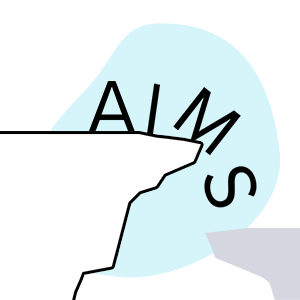American Claims Management: 2,428 Audit Complaints Filed With CA DWC

Using data generated by over 2,800 electronic bills sent by our provider clients in 2022, daisyBill demonstrates consistent non-compliance with California e-billing regulations by American Claims Management, Inc. (ACM).
daisyBill emailed ACM to address the non-compliance. ACM did not respond.
For bills submitted in 2022, below is the message and formal Audit Complaint daisyBill submitted to the Division of Workers’ Compensation (DWC), outlining systemic violations as follows:
- ACM failed to timely send electronic EORs (X12 835) to California providers, as mandated by California law, in response to 1,025 (35%) e-bill submissions
- ACM failed entirely to send electronic EORs (X12 835) to California providers, as mandated by California law, in response to 1,403 (49%) e-bill submissions
As advocates for providers, we must point out that if a provider fails to either timely or accurately submit a workers’ comp bill (for any reason), the claims administrator simply denies the bill as invalid and denies payment. The provider is left with little recourse to ‘correct’ the alleged non-compliance, resulting in forfeiture of payment for the treatment rendered.
We urge the DWC to enforce California workers’ comp billing and payment requirements, and impose appropriate consequences on ACM for its consistent failure to comply. ACM’s actions impose an unnecessary administrative burden on providers, and unjustly deprive providers of due reimbursement for treating injured workers.
ACM: Ignoring CA Law
To: XXXXXXXX@dir.ca.gov
Subject: American Claims Management, Inc. EDI Non-compliance: X12 835 Late - 1,025 & X12 835 Missing - 1,403
Below is an Audit Complaint reporting credible data that American Claims Management, Inc. (ACM) ignores California EDI requirements, as follows:
- ACM. failed to timely send electronic EORs (X12 835) to California providers as mandated by California law in response for 1,025 (35%) submissions
- ACM failed to send electronic EORs (X12 835) to California providers as mandated by California law in response for 1,403 (49%) submissions
On 6/23/2022, daisyBill emailed three ACM representatives to report the lack of compliance:
- XXXXXXXX, ACM President
- XXXXXXXX, Senior Vice President, Property & Casualty
- XXXXXXXX, Vice President, Property & Casualty
As of 7/19/2022, American Claims Management, Inc. has failed to respond.
DWC Rule 7.1 requires the claims administrator to electronically send an EOR to the provider using the X12 835 EDI standard within 15 working days of receipt of an e-bill.
A provider's receipt of an electronic EOR (X12 835) is a critical component of electronic billing for the following three reasons:
- The electronic EOR closes the payment loop for a workers’ comp e-bill, and
- Automatically posts to the respective e-bill, thereby significantly reducing a provider's administrative burden of manually recording payment information to the respective e-bill, and
- Allows the gathering of important payment data about the claims administrator that heretofore was hidden in the paper EORs mailed to individual providers.
This Audit Complaint data represents California workers’ comp e-bills submitted to ACM by daisyBill providers from January 1, 2022 through June 15, 2022.
Attached to this email are two separate CSV documents with credible data demonstrating the following:
#1 ACM Electronic EOR (X12 835) Late - 1,025
For January 1, 2022 through June 15, 2022, this CSV lists 1,025 e-bills daisyBill providers submitted where ACM failed to timely return a mandated electronic EOR to the provider in response to the e-bill. The attached CSV list includes the following columns:
- Column L: [Bill] Transmission Date
- Column V: EOR (835) Compliance Due Date
- Column W: EOR (835) - The dates in this column are AFTER the EOR (835) Compliance Due Date
- Column AN: Patient Name
- Column AO: Claim Number
#2 ACM Electronic EOR (X12 835) Missing - 1,403
For January 1, 2022 through June 15, 2022, this CSV lists 1,403 e-bills daisyBill providers submitted where ACM failed to return a mandated electronic EOR to the provider in response to the e-bill. The attached CSV list includes the following columns:
- Column L: [Bill] Transmission Date
- Column V: EOR (835) Compliance Due Date
- Column W: EOR (835) Receipt Date - This column is BLANK because ACM failed to send the provider an electronic EOR (835).
- Column AN: Patient Name
- Column AO: Claim Number
Audit Complaint Details
This Audit Complaint Data submitted to the DWC represents a credible complaint and credible information of claims handling violations. Per Title 8, California Code of Regulations section 10111.2(b)(10),(11), SCIF should be subject to audit penalties.
Noncompliance: Claims administrator failed to send an electronic Explanation of Review (EOR) in the mandated ASC X12N/005010X221A1 (835) format, despite the claims administrator sending a 277 Acknowledgement accepting the Original Bill / Second Review Appeal.
DWC Rule 7.1 requires the claims administrator to electronically send an EOR to the provider using the X12 835 EDI standard within 15 working days of receipt of an e-bill.
Per California DWC Medical Billing and Payment Guide 7.2, any electronically submitted bill determined to be completed, not paid, or objected to within the 15 working day period, shall be subject to audit penalties per Title 8, California Code of Regulations section 10111.2(b)(10),(11).
daisyBill has the technology and expertise to make workers’ comp work better. Reach out to see how we can help your practice obtain fast, correct reimbursement for treating injured workers.
LET’S TALK
DaisyBill provides content as an insightful service to its readers and clients. It does not offer legal advice and cannot guarantee the accuracy or suitability of its content for a particular purpose.








